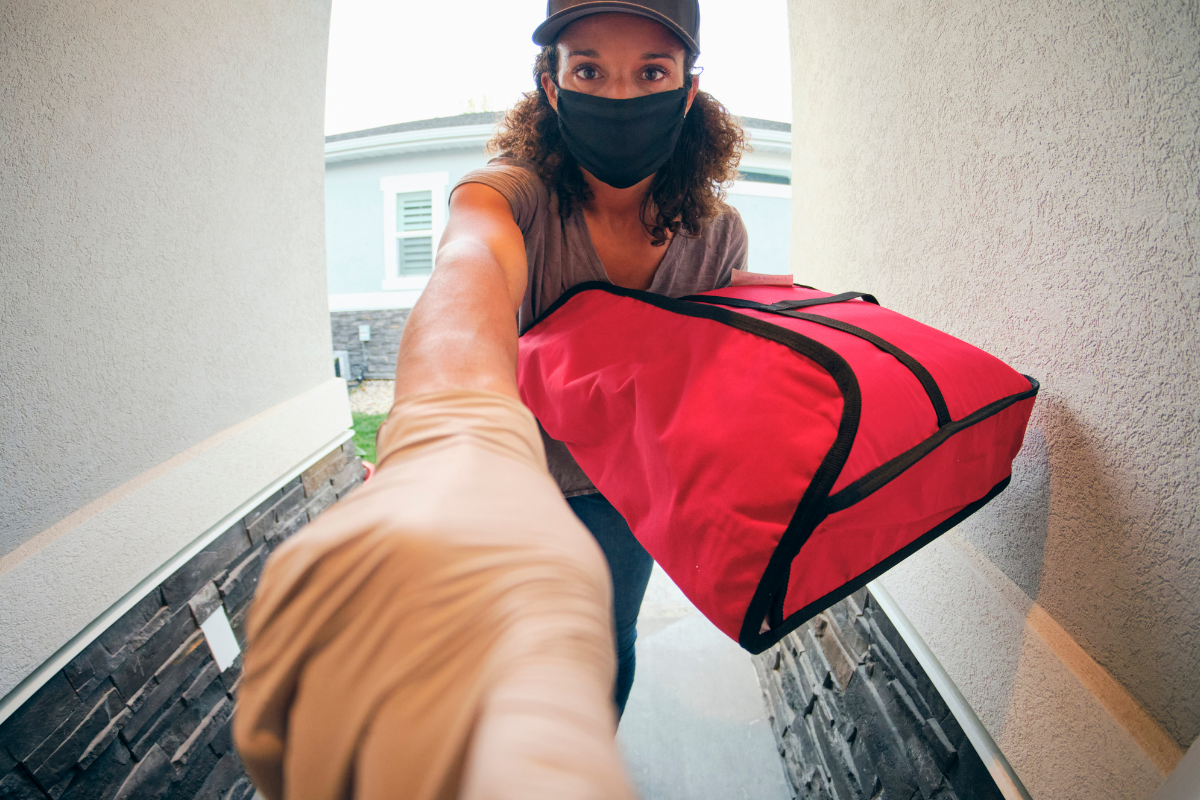
The popularity of food delivery services like DoorDash, Uber Eats and Skip the Dishes has exploded since the beginning of the pandemic, allowing customers to enjoy their...

Coronavirus (COVID-19) has infected more than 36 million people worldwide [updated as of October 10], prompting many to worry about transmission of the virus, especially with regards to our eating habits. The respiratory virus, which has recently made its way to North America, presents symptoms including coughing, fever, shortness of breath, but can lead to pneumonia, kidney failure, and severe acute respiratory syndrome in more severe cases. Here’s what you need to know about coronavirus and food safety.
How is coronavirus spread?
While experts still have a lot to learn about COVID-19, the virus can be spread through droplets released when a person coughs, sneezes, or exhales. Coronavirus is spread in a manner similar to other respiratory viruses like influenza. After droplets have been released by an infected person, coronavirus is then transmitted when somebody comes into contact with these droplets, either by touching a surface that has made contact with droplets and touching their mouth, eyes, or nose, or by accidentally inhaling droplets.
Can coronavirus be transmitted through food?
There’s currently no evidence to say that coronavirus can be transmitted through food. Since the only known way to become infected with COVID-19 is through respiration or direct contact with droplets, experts agree that the virus being transmitted through food is extremely unlikely. In fact, there’s little to no evidence of any other respiratory viruses being transmitted through food. Shoppers and restaurant goers can rest easy knowing that their food is safe - the primary concern of consumers should be to protect themselves from person to person contact, which remains the most significant risk.
How restaurants and food service businesses can prevent the spread of coronavirus
Since COVID-19 can’t be transmitted through food, it’s safe for people to continue visiting restaurants and foodservice businesses, as long as they take the proper precautions. In order to mitigate the risk of spreading the virus, restaurants need to stay up-to-date on the latest developments relating to coronavirus for both staff members and patrons.
Managers should strictly monitor the health and hygiene of employees, ensuring that thorough hand washing is practiced at all times, gloves are worn during food preparation, and tables, counters, and other high-traffic surfaces are regularly sanitized. These measures must be practiced at all times, and can be enforced by management by posting signage like infographics and other reminders.
Employees who present symptoms should be sent home immediately to avoid person to person transmission, which remains the biggest risk to customers and other employees. An open line of communication should be opened between all staff members to help update them on new developments and possible absences. If your business offers delivery, it may be wise to allocate proper resources to the delivery side of your business, taking advantage of in-house delivery and apps like Skip the Dishes and Uber Eats.
How to avoid contracting the coronavirus
Unless otherwise instructed, consumers should continue about their normal routines, though it’s highly recommended that you take proactive measures to protect yourself. Canadians should take the same preventative measures they take during flu season. Protective measures include thoroughly washing your hands, avoiding touching your face, covering your mouth and nose when coughing or sneezing (elbow sneeze), and giving a wide berth to people around you who are coughing or sneezing. If you feel sick and are currently experiencing a serious fever, cough or difficulty breathing, see a doctor.
For up-to-date information about COVID-19 in Canada, visit Health Canada’s outbreak update page.
For more information on the wide range of infographics offered by Food Safety Market and how they can transform your businesses food safety practices, visit the infographics page on our website or email us at service@foodsafetymarket.com.

The popularity of food delivery services like DoorDash, Uber Eats and Skip the Dishes has exploded since the beginning of the pandemic, allowing customers to enjoy their...

Summer cookouts and snacks on day trips go hand-in-hand with the enjoyment of our short Canadian summers. But food can quickly become contaminated with bacteria which...